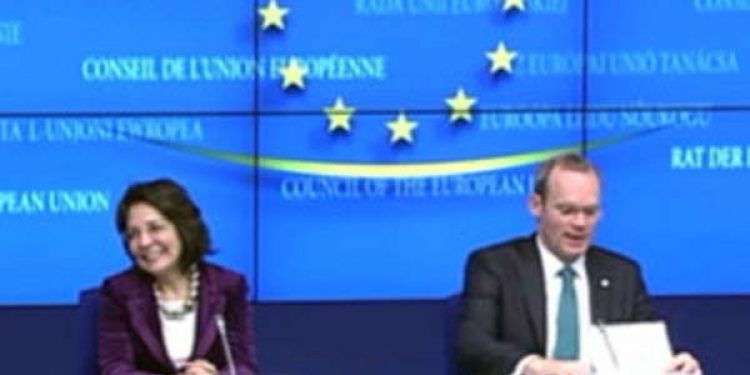The Agriculture and Fisheries Council meeting of February took place in Brussels on 25 and 26 February 2013, under the presidency of Mr Simon Coveney, Irish Minister of Agriculture, Food and the Marine.
The Council discussed the main Regulation of the European Parliament and of the Council on the Common Fisheries Policy, proposed by the Commission in July 2011, as part of the package of proposals for a new, reformed fisheries policy for the EU.
Ministers reached a general approach on the remaining parts of the Regulation, after the partial approach they agreed in June 2012 under Danish Presidency. More specifically, the Council focused on the environmental obligations of Member States and on the ban of discards that are foreseen in the Regulation. The Council position foresees that all species will be covered by the discard ban. Negotiations with the European Parliament will start immediately in trilogues and the Commission stands ready to fully play its role in order to achieve the most ambitious outcome.
Commissioner Maria Damanaki, presenting the Commission position at the beginning of the discussions, said: “Today we have a very difficult job, a very ambitious task. I appreciate a lot the efforts to have as many countries as possible on board, but I think also that we have to keep the ambition of the proposal on the table.
Reaching sustainability and abandoning discarding practices is indeed a radical change and we have to keep this momentum. We are not starting from scratch, we have an excellent starting point: the General Approach that the Council agreed in June is the basis on which we will have to build today. We have to move forward to remove the uncertainties that are still there work in order to have a compromise that can be workable: we have to find the best way to implement the reform.
About the discard ban: I understand the concerns of Ministers and the Presidency, about the timeline: we need to be realistic and I am here to hear your proposals. I just want to remind that 2020 is the deadline: that is the limit we all agreed upon.
Also we need some flexibility referring to mechanisms for implementation and I am ready to discuss about the introduction of a de minimis threshold and quota flexibility measures.
I understand that we will need incentives to persuade our industry that we are going to support the adjustments needed to have better implementation: I can promise that we are to exhaust our margin in order to fund projects that can help the discard ban. For example, we have funded the 50-50 pilot projects to eliminate discarding in the English Channel ; we are going to follow this example and the Commission will do its best to keep funding projects to have new more selective gears and enhance cooperation between fishermen and scientists: our fishermen will not be left alone, this is a promise.
Though, two elements are of particular concern. Firstly the introduction of generalized exemptions for certain species, and, secondly, the introduction of transitional over quota fishing. These measures undermine the principles of our proposal. We want an effective discard ban, we want to stop high levels of discarding of all important species.
I am here to facilitate this dialogue: our proposals are not set in stone, and we can accept improvements to make the discard ban work in practice. But we have to stay within the boundaries of the aim of this reform. I am ready to work with you in that direction today.”
The objective of the reformed fisheries policy is to end overfishing and make fishing sustainable – environmentally, economically and socially. The new policy aims to:
*bring fish stocks back to sustainable levels by setting fishing opportunities based on scientific advice
*provide EU citizens with a stable, secure and healthy food supply for the long term
*bring new prosperity to the fishing sector, end dependence on subsidies and create new opportunities for jobs and growth in coastal areas.
EU commission
FiskerForum.com









